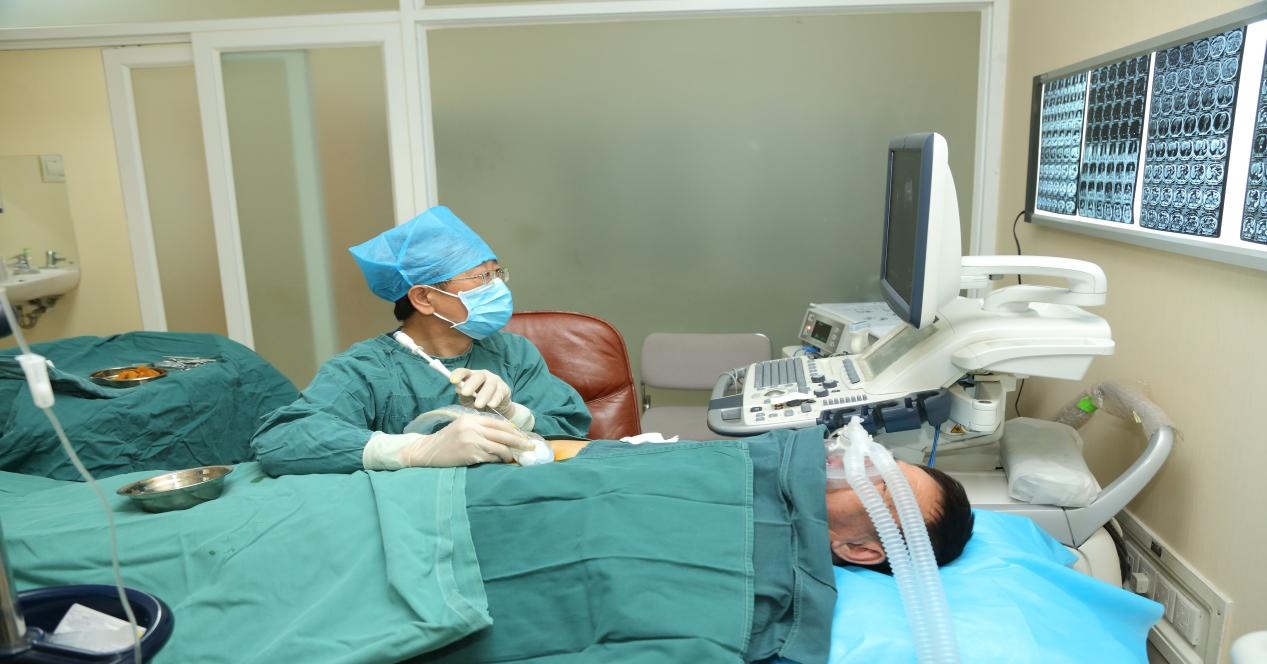The department currently has 252 beds and is divided into subspecialties. There are 9 medical professional groups (breast cancer group, thoracic cancer group, minimally invasive therapy group for hepatobiliary and pancreatic cancer, gastrointestinal cancer group, genitourinary cancer group, melanoma and soft tissue cancer group, head and neck cancer group), paying attention to clinical practice, medical education as well as research, and aiming to promote the standardization of diagnosis and treatment of cancer and innovative research.
Medical: Adhering to the tenet of "patient-centered", the department took the lead in establishing and operating a sub-specialty group and MDT (Multi-Disciplinary Team) model in Jilin Province; carried out minimally invasive cancer treatment, needle biopsy, and infusion port implantation, all of which are in a leading position in China; Established the characteristic treatment technology of cancer immune cells, performed the combination of production and research, and promoted the industrialization process of cancer immune cell treatment technology; proposed and practiced a multi-dimensional comprehensive cancer support treatment system with the goal of “no pain, no hunger, no vomiting, no thrombosis, no worry, and no toxicity”, which played a leading position in Jilin Province.


Teaching: Established the Oncology Teaching and Research Section of The First Hospital of Jilin University and the Oncology Department of Norman Bethune Health Science Center of Jilin University, transplanted the MDT model into the classroom, carried out multidisciplinary collaborative teaching, initiated and edited the first edition of Introduction to Oncology, a “Twelfth Five-Year Plan” textbook for the five-year medical education program in clinical medicine, led and participated in the edition of 7 national and school-level textbooks, and won 1 first prize for teaching achievements in Jilin Province.
Scientific Research: Improved the quality of medical care by translational scientific research. The department has 8 provincial-level laboratory platforms including the Jilin Provincial Key Laboratory of Biotherapy and has undertaken more than 100 national key R&D programs of the Ministry of Science and Technology, major projects of the Ministry of Education, key national natural projects and other national, provincial and ministerial-level projects. It has published more than 200 SCI papers in journals such as Cell Stem Cell, and ranked 25th in the oncology discipline of China’s hospital science and technology value (STEM) in 2020, led and participated in more than 200 clinical trials of new medicine and new technologies at home and abroad. The department established 10 common cancer follow-up databases earlier in Jilin Province, which has realized multi-dimensional whole-process management of patients. The department has also established a teleconsultation center, which has promoted the sharing of high-quality medical resources and regional sinking.
Academic Exchange: each year the Department holds brand conferences with academicians and the chairmen of various professional committees as the main speakers, including the three northeastern provinces geriatric oncology conference, the Bethune cancer summit forum, and the Bethune cancer immunotherapy summit forum, which have enhanced exchanges and cooperation with domestic oncology colleagues.
Primary Hospital Assistance:
The department regularly sends medical staff to the primary hospital for guidance. Up to December 2021, more than 400 people have been dispatched, and the number of outpatient clinics, ward rounds, and consultations is more than 4700. Efforts will be made to improve the level of local diagnosis and treatment and promote the process of homogenization of medical services.